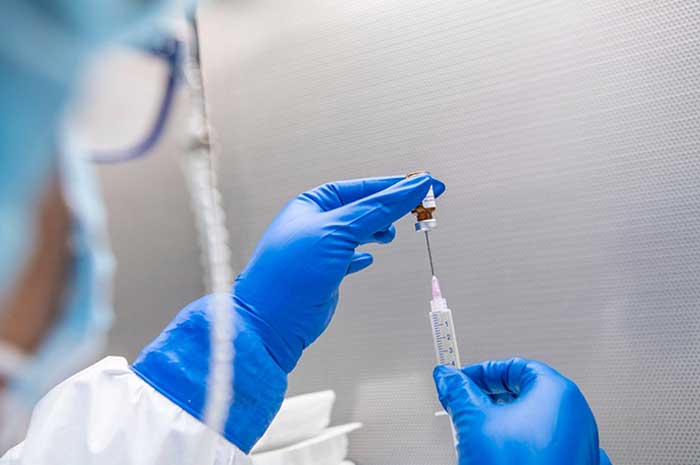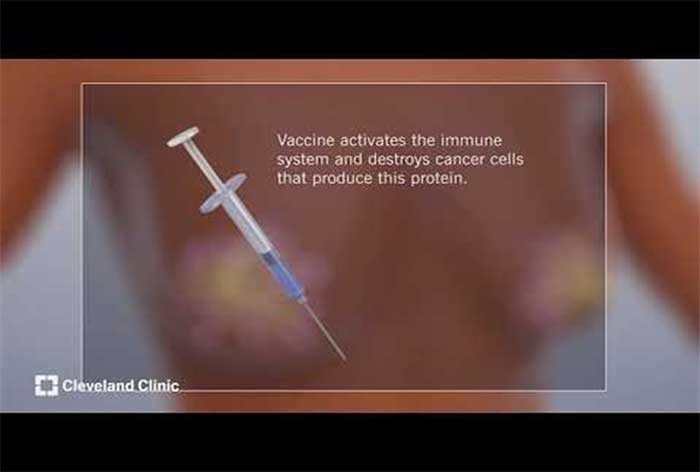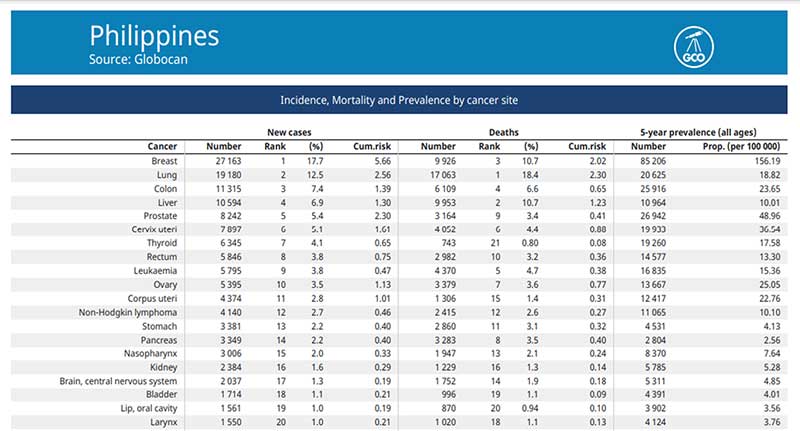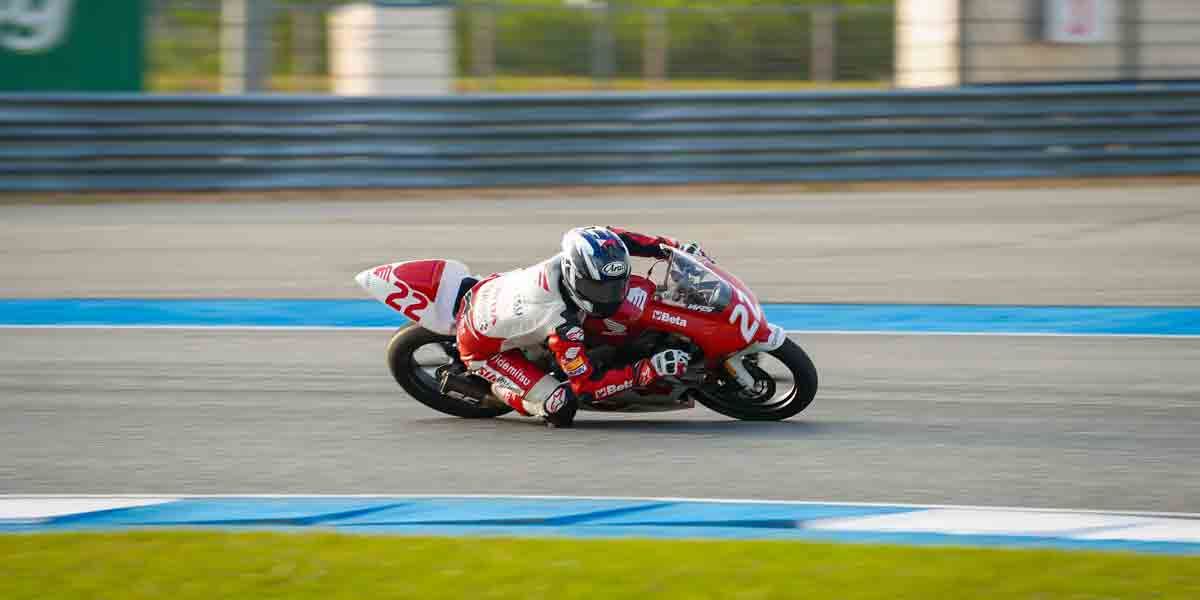
By Ayra Monette Tamaray
After nearly two decades, a vaccine that could prevent breast cancer begins its phase 1 trial, Cleveland Clinic researchers said on Oct 26, 2021 in a press release on their official website.
The researchers said the vaccine aims to prevent triple-negative breast cancer, a highly aggressive breast cancer with the least effective treatment.
“This phase 1 trial is designed to determine the maximum tolerated dose of the vaccine in patients with early-stage triple-negative breast cancer and to characterize and optimize the body’s immune response,” the researchers said.
They added that it will be administered among 18 to 24 patients in the United States who completed treatment for early-stage triple-negative breast cancer within the past three years and are currently tumor-free but still at high risk for occurrence.
Unlike measles and polio, there is no immediate cure or vaccine to avoid cancer. Only treatments are available for cancer patients such as surgery and chemotherapy.
The vaccine could be revolutionary as it is designed to protect the body even before the disease occurs.
“What we’re trying to do is what we call primary prevention. It’s actually preventing the disease from occurring to begin with – [like] it was never there to begin with,” Dr. Vincent Tuohy, the primary inventor of the vaccine, said in a Cleveland Clinic news release.
The researchers said the vaccine targets a protein called ɑ-lactalbumin found in lactating women and most triple-negative breast cancer patients. The vaccine activates the immune system against this protein providing preemptive protection against emerging breast tumors that express ɑ-lactalbumin.

Furthermore, the vaccine also contains adjuvant, a substance that activates the body’s immune response, which allows the immune system to act against emerging tumors.
“During the course of the study, participants will receive three vaccinations each two weeks apart and will be closely monitored for side effects and immune response,” the Cleveland Clinic researchers said.
Though the study is still in its phase 1 trial, this new medical development raises hope for people worldwide battling against breast cancer.

In the Philippines alone, data from The Global Cancer Observatory shows that as of 2020, breast cancer ranks as the third most fatal type of cancer among Filipino women.
Among the women battling breast cancer is Linda Samonte, 80, and diagnosed with the disease for five years now.
“Nag-start siya noong may naramdaman akong parang bukol sa may side ng dibdib ko at ’yun na, sabi ko agad sa mga anak ko kailangan ko nang magpacheck-up kasi parang iba ’yung pakiramdam ko,” she said during a personal interview.
When the results showed that she had stage 2 breast cancer, she had a solid will to undergo surgery and chemotherapy as the doctor advised.
However, unlike most cancer patients, Linda preferred oral chemotherapy, meaning she only takes specific doses of drugs at home based on her doctor’s prescription.
“Awa ng Diyos okay naman ako. Ni hindi nga ako natakot para sa sarili ko, pero para sa mga anak at apo ko dahil ang alam ko ang cancer puwedeng nasa genes ’yun eh,” Linda said.
According to the Centers for Disease and Control Prevention (CDC) data, about 5% to 10% of breast cancers are hereditary.
Hereditary cancer means that “cancer runs in your family and could be caused by a change in certain genes that you inherited from your mother or father,” the CDC further said.
Hope for her children and grandchildren filled the heart of Linda when she knew about the development of the vaccine.
“Noong nabasa ko nga ’yung news about diyan sa vaccine alam kong matagal pa siya matatapos, pero okay lang dahil one step forward pa rin ’yun,” she said.
“Sana aabot sa akin pero kung ’di man, masaya pa rin ako para sa mga anak at apo ko siyempre,” she added.
Contrary to COVID-19 vaccines, which had faster development, the vaccine under study will take years before becoming an actual treatment available for the public.
“I do think that this is hopeful to the next generation, hopefully people for this generation who were diagnosed as well,” Dr. Marissa Weiss, chief medical officer at BreastCancer.org and a breast cancer survivor, said in an interview with NBC10.
When asked about the prospect of the breast cancer vaccine under study, Weiss said, in an interview with the TODAY show, that the research development is fascinating.
“I’ve seen a lot of miracles, and we need another one for women with triple-negative breast cancer,” she added.
The radical fight against breast cancer is still at its starting point, the principal investigator of the study, Dr. G Thomas Budd, said in a Cleveland Clinic news release.
“We’re beginning with patients who already have breast cancer and have something to gain from this,” he said. “Once we figure out the side effects and dosage, we want to study patients who have a genetic risk to develop triple-negative breast cancer.”
Though the development is just starting, the vaccine strategy could be hitting more than two birds with one stone as it has the potential to be applied to other tumor types.
“Our translational research program focuses on developing vaccines that prevent diseases we confront with age like breast, ovarian, and endometrial cancers,” Tuohy said in the press release.
“If successful, these vaccines have the potential to transform the way we control adult-onset cancers and enhance life expectancy in a manner similar to the impact that the childhood vaccination program has had,” he added.
The Cleveland Clinic researchers said the estimated completion of the study is in September 2022.
The trial results may take years before the actual completion, but, for now, one thing is definite- the vaccine under study proves to be a game changer that could lead to a more strategic fight against cancer.
(Ayra Tamaray is a second year BA Communication student of the University of the Philippines Baguio)




















